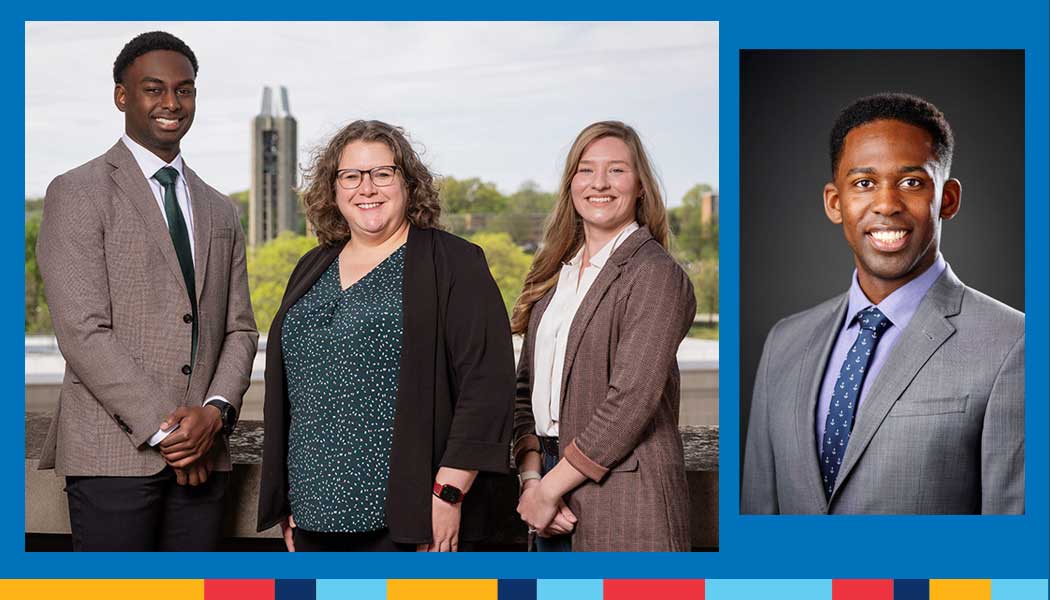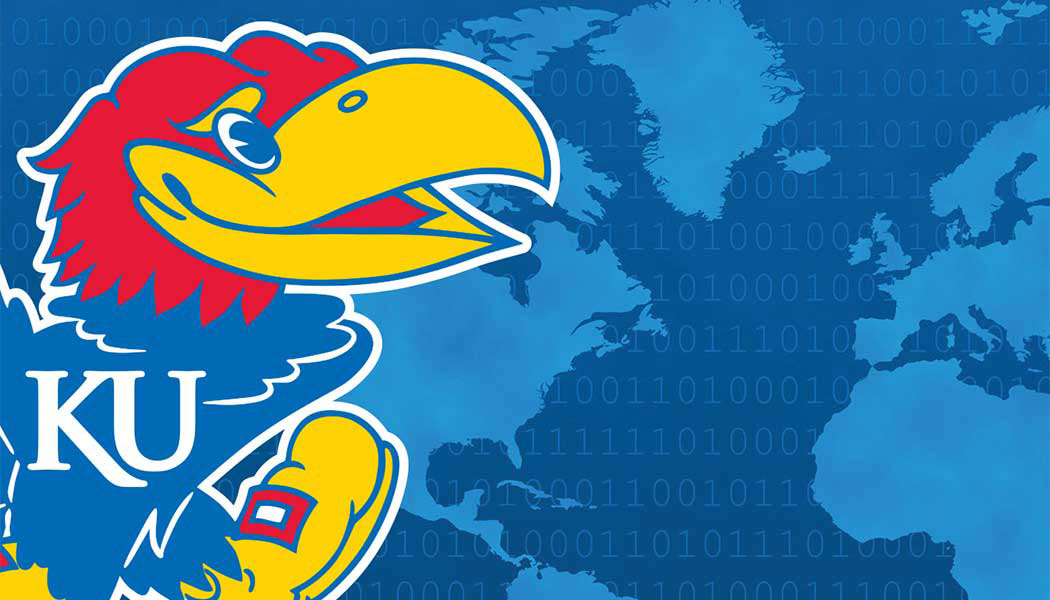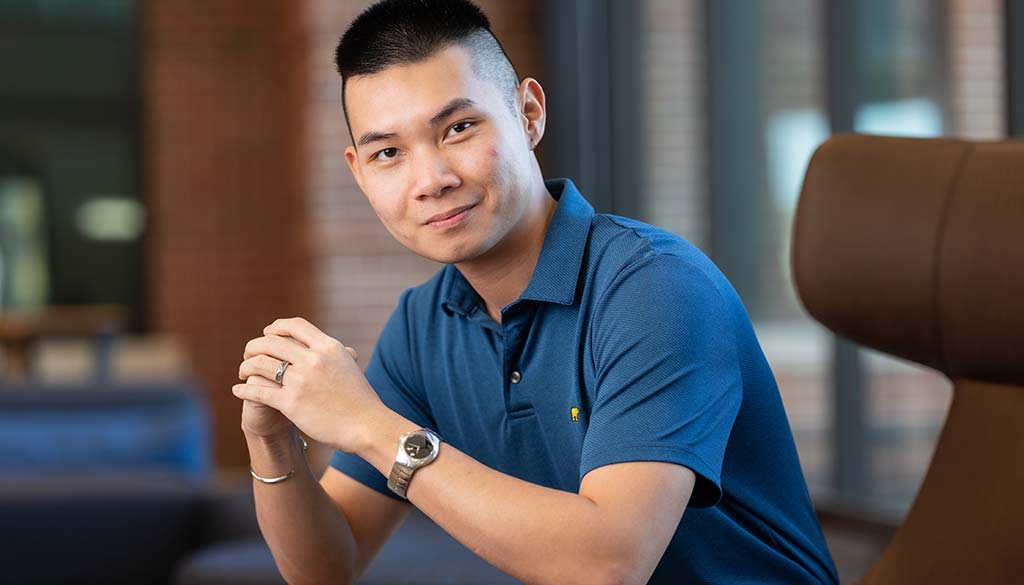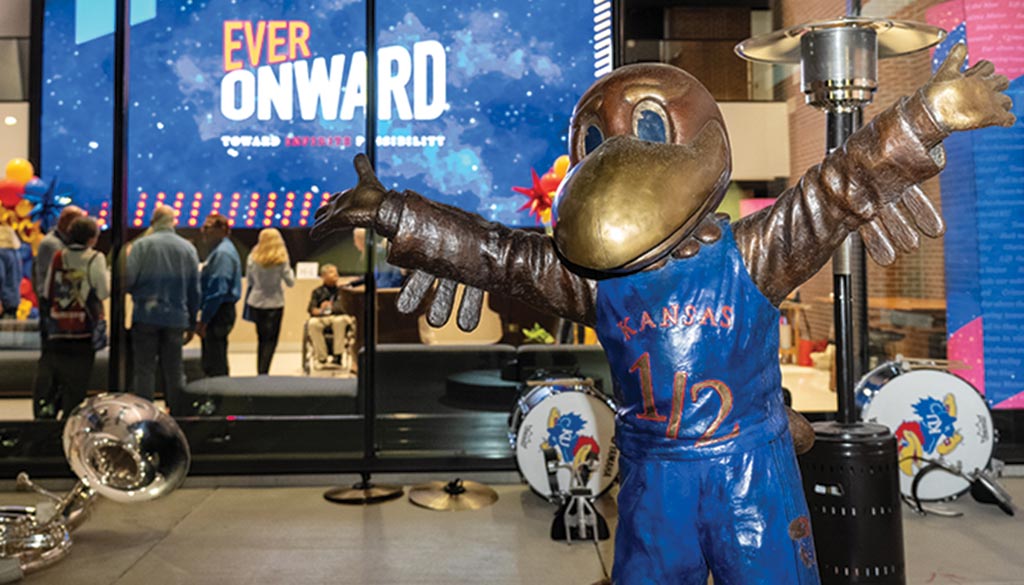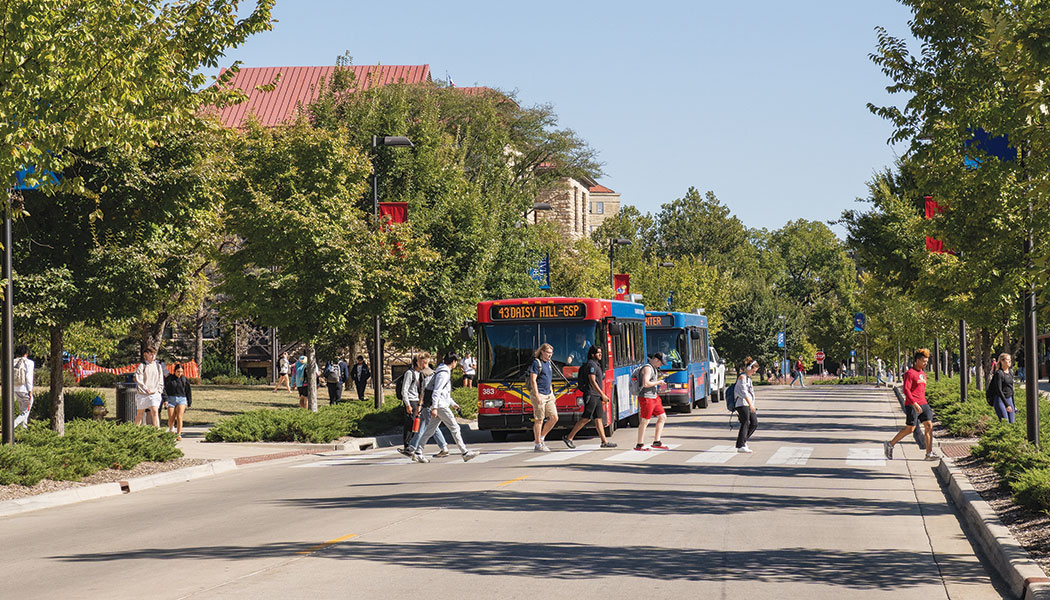Fabulous firsts: KU’s ‘I Am First Too’ celebrates first-generation collegians
Recognizing trailblazers and the barriers they overcome is focus of poster program.
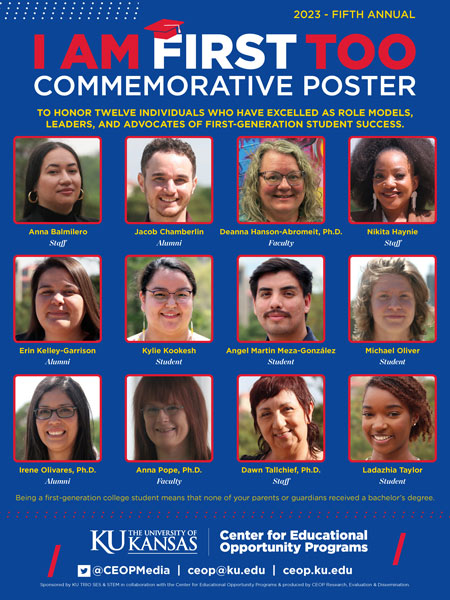
When the Center for Educational Opportunity Programs introduced the I Am First Too poster in 2019 to showcase the role of first-generation college students at KU, it was important to those who came up with the idea that the roster of smiling faces include not only current students who were the first in their families to attend college, but also staff, faculty and alumni whose completion of a four-year degree was a pioneering achievement in their families as well.
Since then, 60 members of the Jayhawk community have been featured on the annual posters, which are released on or around Nov. 8 each year as part of the University’s marking of National First-Generation College Celebration Day. Honorees, who are nominated by the campus community, have ranged from students still working on a bachelor’s degree to deans and senior faculty members with PhDs.
“We want people to see all the success stories,” says Alex Hernandez-Castro, c’05, g’18, associate director of TRIO SES and STEM programs at KU. “We want people to see that first-generation students are going on to become first-gen professionals. They’re teaching in our universities, working at our universities. We really want to highlight the success within the entire first-gen community.”
A first-generation college graduate herself, Hernandez-Castro says the posters are also intended to acknowledge the challenges that first-generation students can encounter.
“First generation,” according to the official federal definition developed for TRIO program acceptance and Pell Grant eligibility, applies to students from families where the biological parents did not complete a four-year college degree. The designation recognizes that these students may not have access to the cultural capital that benefits students whose parents completed college: namely, built-in help navigating what the national Center for First-Generation Student Success calls the “hidden curriculum”—policies, procedures, jargon and expectations built in to higher education culture that can have a big impact on a student’s confidence and sense of belonging.
“I Am First Too is also raising awareness and helping spread the message that first-gen people, students specifically, come with a lot of strengths, a lot of wonderful things, and there are also a lot of barriers they face in higher education,” Hernandez-Castro says. “But given support, we succeed and we do amazing things.”
At KU, that support can be direct (lending active assistance) and indirect (simply modeling success), suggests Gretchen Heasty, director of TRIO SES and STEM.
“I think it’s so important for students to be represented and to hear their story in other people who they admire or who are thriving,” says Heasty, s’94, c’94, g’98. “It’s like, ‘Oh, wow, they’re doing it. So can I.’
“I also see first-gen faculty, staff and alumni spending hours outside of their workday to meet with students or create research ideas or just going that extra mile because they want to help students on a personal level, which I think is amazing,” Heasty says. “Being first-gen doesn’t end once you get a college degree. You’re a first-gen professional, you’re a first-gen doctoral student, maybe you’re first-gen faculty. Recognizing the trailblazers in those areas and learning what are some of the systemic barriers, what are you experiencing, what are your successes—I think that’s an important part of this recognition: creating the space for those conversations.”
Nominations are accepted each spring through Feb. 23, and the poster reveal in November exemplifies that space for community and conversation that Heasty and Hernandez-Castro envision. Held in 2023 at the Burge Union as part of KU’s inaugural weeklong First-Generation Student Conference, the reception brought out past honorees, faculty, staff and student families in support of the 2023 honorees.
“Last November was really awesome, because I feel like people were getting to know each other,” Hernandez-Castro says. “Everybody’s sharing stories, there’s faculty, staff, students, and it was such a cool experience. It really made you feel like, ‘OK, this is my community. Here we are.’ It was a proud moment, I think, for everybody.”
2023 “I Am First Too” honorees
Students
Kylie Kookesh, senior, School of Education & Human Sciences
Angel Martin Meza-Gonzalez, b’23
Michael Oliver, junior, School of Engineering
Ladazhia Taylor, j’23
Staff
Anna Balmilero, c’16, g’20, transfer coordinator, KU Edwards campus
Nikita Haynie, director, Emily Taylor Center for Women & Gender Equity
Dawn Tallchief, assistant director for student programs, Center for Undergraduate Research
Faculty
Deanna Hanson-Abromeit, associate professor of music therapy and music education
Anna Pope, assistant teaching professor of psychology
Alumni
Jacob Chamberlin, c’17
Erin Kelley-Garrison, g’19
Irene Olivares, g’12, PhD’16
TRIO Supportive Educational Services
TRIO Supportive Educational Services (TRIO SES) is a student support service program for first-generation, low-income or disabled KU students. TRIO is not an acronym, but refers to three federal programs founded in the 1960s under Title IV of the Higher Education Act: Upward Bound, Talent Search and Support Services. A 2015 federal grant allowed KU to enhance services for TRIO students majoring in science, technology, engineering, math and health care, and the program name was changed to TRIO SES and STEM. In 2023, KU celebrated 50 years of continuous federal TRIO funding.
Past “I Am First Too” posters
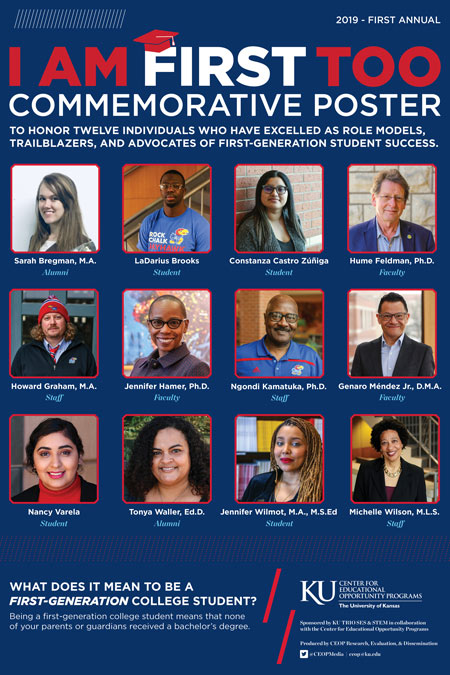
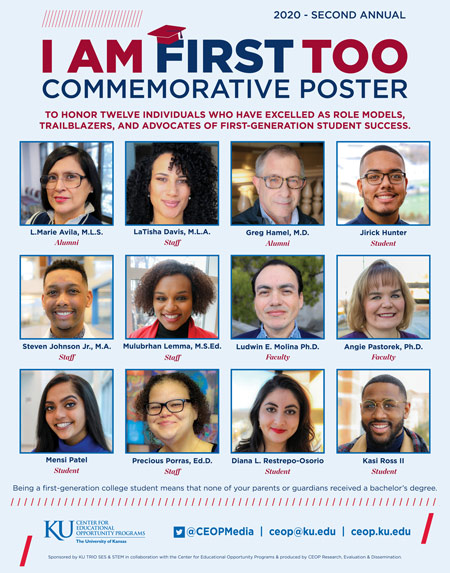
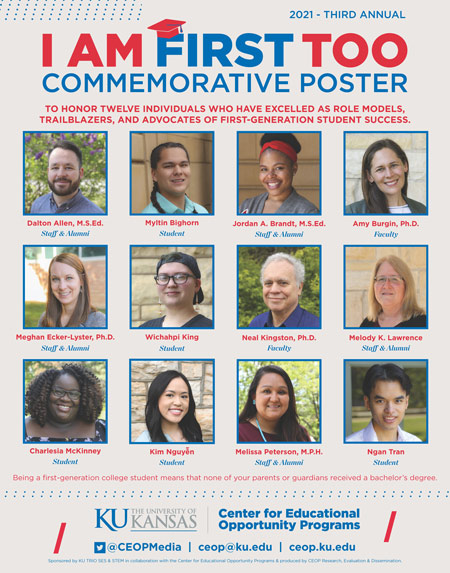
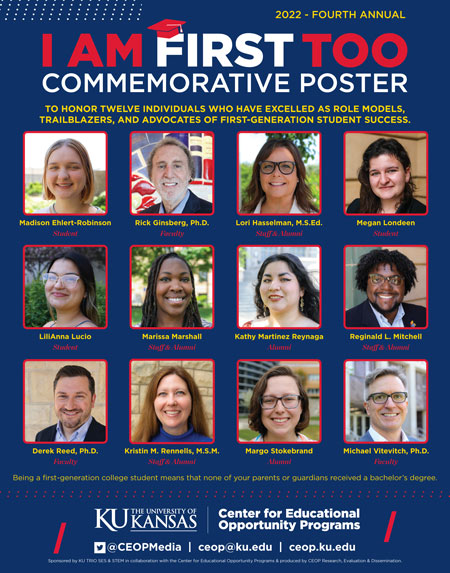
Steven Hill is associate editor of Kansas Alumni magazine.
/
